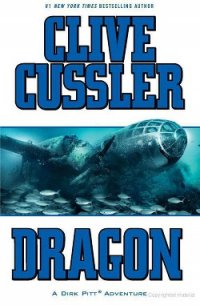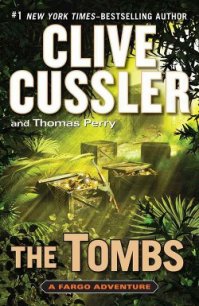The Jungle - Cussler Clive (электронную книгу бесплатно без регистрации TXT) 📗
“You see, at no point in his dictations to Rustichello da Pisa did he ever mention China’s Great Wall. That would be like a modern tourist saying they’ve been to London but not seen the Eye. Wait. That hideous Ferris wheel may be something a savvy traveler would want to forget.” Cantor paused for laughter. Got more coughing. “Ah yes, then, his failure to mention the Great Wall, which is just a short distance from Beijing, where Polo spent so much time, led his detractors to discount his entire tale.
“But what if fault lies not with the dic-ta-tor but the dic-ta-tee.” Here he had planned to make a play on words and mention the despotic Genoese doge who had imprisoned Polo and the scribe, Rustichello, but decided against it. “Little is known about the man Polo dictated his story to while they served time in a Genoese prison cell following Polo’s capture at the Battle of Curzola. Rustichello himself had been captured some fourteen years earlier after the pivotal Battle of Meloria, which marked the beginning of the decline of the Pisan city-state.
“Rustichello was, to put it in today’s vernacular, a romance writer who’d gained some measure of success prior to his being taken prisoner. Think of him as the Jackie Collins of his day. That would give him a strong insight into what would capture the imagination of his reading audience and what would be seen as too fantastic to believe.
“With that in mind, I see him not only as the man wielding the pen that put Polo’s story to paper but as his editor as well, a man who could perhaps blunt some of Polo’s more controversial discoveries in order to give the manuscript more mass appeal. Medieval noblemen—and that’s almost exclusively who writers wrote for at the time—wouldn’t appreciate that China rivaled them and in many cases surpassed their achievements in the fields of medicine, engineering, social administration, and especially warfare.”
Cantor paused a moment. Expressions on the faces of his audience ranged from asleep to slack-jawed indifference. So long as they were out of the freezing rain pounding the central English city, they didn’t much care what he said. He wished he could see the man in the dark suit, but he was hidden behind a tall homeless fellow who slept in an almost perfectly erect posture.
“It was with this thought in mind—that perhaps Rustichello took notes during their long confinement that were edited out of the final draft of Travels and that those notes would account for some of the lapses in Polo’s story that have vexed future scholars and made them question the validity of the entire book—that I come to you today.” The line sounded clunky to Cantor’s ear too, but he was trying to come off as learned, and all his dons at Oxford spoke in run-on sentences that could fill a page or more.
“I believe,” he continued, “that somewhere in the world exist those notes, those bits of Polo’s story that couldn’t get past the medieval censor—that was the Vatican—and would have raised too much doubt among the contemporary readership. Since leaving Christ Church”—no sense admitting that he hadn’t graduated—“I have searched across Italy and into France for a hint of such a book. And finally, six months ago, I believe I found it.”
Did Black Suit stir at this news? It seemed to Cantor that the shadow at the back of the room shifted position slightly. He felt like a fisherman who senses that first nibble on the end of his line. Now he had to set the hook before reeling in his prize.
“I was given access to the sales records of a small antiquarian bookshop in an even smaller town in Italy that has been in business since 1884. They have a record of selling a copy of Rustichello’s seminal work, Roman de Roi Artus, in 1908. Included with the book of Arthurian legend was a folio of loose pages.
“At this time, Edwardian English families were exploring Italy in order to broaden themselves. Think of E. M. Forster’s A Room with a View.” To most of this lot it should be Cardboard Box with a Cellophane Window, but Cantor knew he was really playing to an audience of one. “Like any tourist, these travelers brought back souvenirs. Furniture, statuary, just about anything they could get their hands on that would remind them of Lombardy or Tuscany. One particular family fancied books and returned with veritable trunkloads of them, enough to fill a library about the size of this room floor to ceiling. Some of the volumes dated back to a century before Polo was even born. It is this family who acquired the Rustichello works.
“For a fee, I was granted limited access to their library.” Five hundred pounds for an afternoon, Cantor recalled bitterly. He recalled most things bitterly these days. The current library’s owner was a right miserable git who, knowing Cantor’s desperation to see the library, wasn’t above capitalizing on the scholarly interest of a thirty-year-old researcher.
Cantor had scraped together only enough for a single visit, but it had been enough. And that was what he was really doing here today, and for the past few months. He had no interest in enlightening dowagers and the homeless. He was hoping to find a patron who would help him fund his research. The folio’s owner had expressed in no uncertain terms that he would not sell it, but he would be willing to allow Cantor access, at five hundred pounds per day.
The young academic was sure that once he published his research, pressure from historical societies would force the owner to, if not donate, at least let a major university authenticate Rustichello’s work and thus cement Cantor’s reputation and hopefully his fortune as well.
“The text is written in typical medieval French, my specialty along with Italian from the same era. I managed to translate only a small portion since I only discovered it toward the end of my sojourn in the library, but what I read is mind-boggling. It is the description of a battle Polo witnessed in 1281 where a general named Khenbish obliterated his enemies using gunpowder, which Polo had never seen used in such a way, and a most remarkable device that utilized a special crystal to channel sunlight into a focused beam, much like a modern laser.”
Cantor paused once again. Dark Suit had gotten to his feet and skulked from the library annex room, his long overcoat dancing around his ankles like an obsidian cape. Cantor cursed under his breath. He’d failed to set the hook, had in fact scared the fish out of the water entirely. He looked dejectedly at the unshaven and sullen faces arrayed against him. What was the point of continuing? They no more wanted to hear his nasal monotone than he wanted to deliver it.
“Ah, thank you very much. Were there any questions?” He was taken aback when a spidery hand went up. The woman had the scrunched face of one of those dolls made of nylon stockings. “Yes?”
“Can you spare some change?”
Cantor grabbed up his briefcase, tossed his worn mackintosh over his arm, and strode out to a chorus of hoarse cackles.
Darkness had fallen completely when he stepped through the library’s doors. The impersonal expanse of Chamberlain Square was hemmed in by the concrete monstrosity of the library on one side, the three-story classical Counsel House on another, and by the Greek temple-like Town Hall on a third. In the middle was the monument to Joseph Chamberlain, who’d been someone or another in this dreary city. To Cantor, the structure looked like thieves had made off with an entire Gothic cathedral and left behind the top sixty or so feet of one of its spires.
If the city fathers had intended to design a less harmonious space architecturally, he couldn’t see how.
Maybe throw in the odd zeppelin shed, he thought uncharitably, or an Eastern Orthodox onion-domed church.
The rain had slowed to a cold drizzle, and though Cantor raised his collar, icy water found its way down the back of his neck. He longed for a warm shower and a hot toddy, and for his sore nose to stop leaking.




